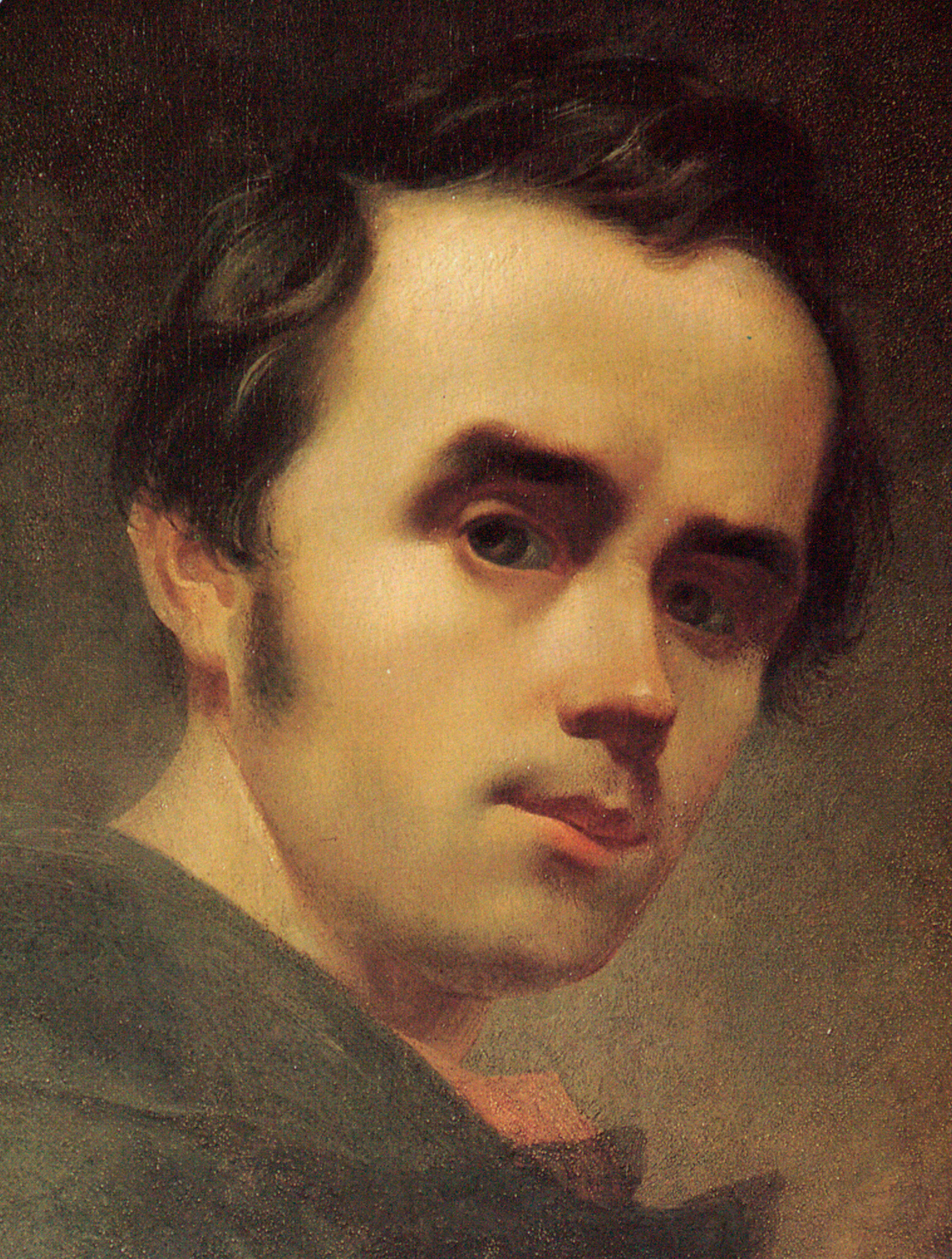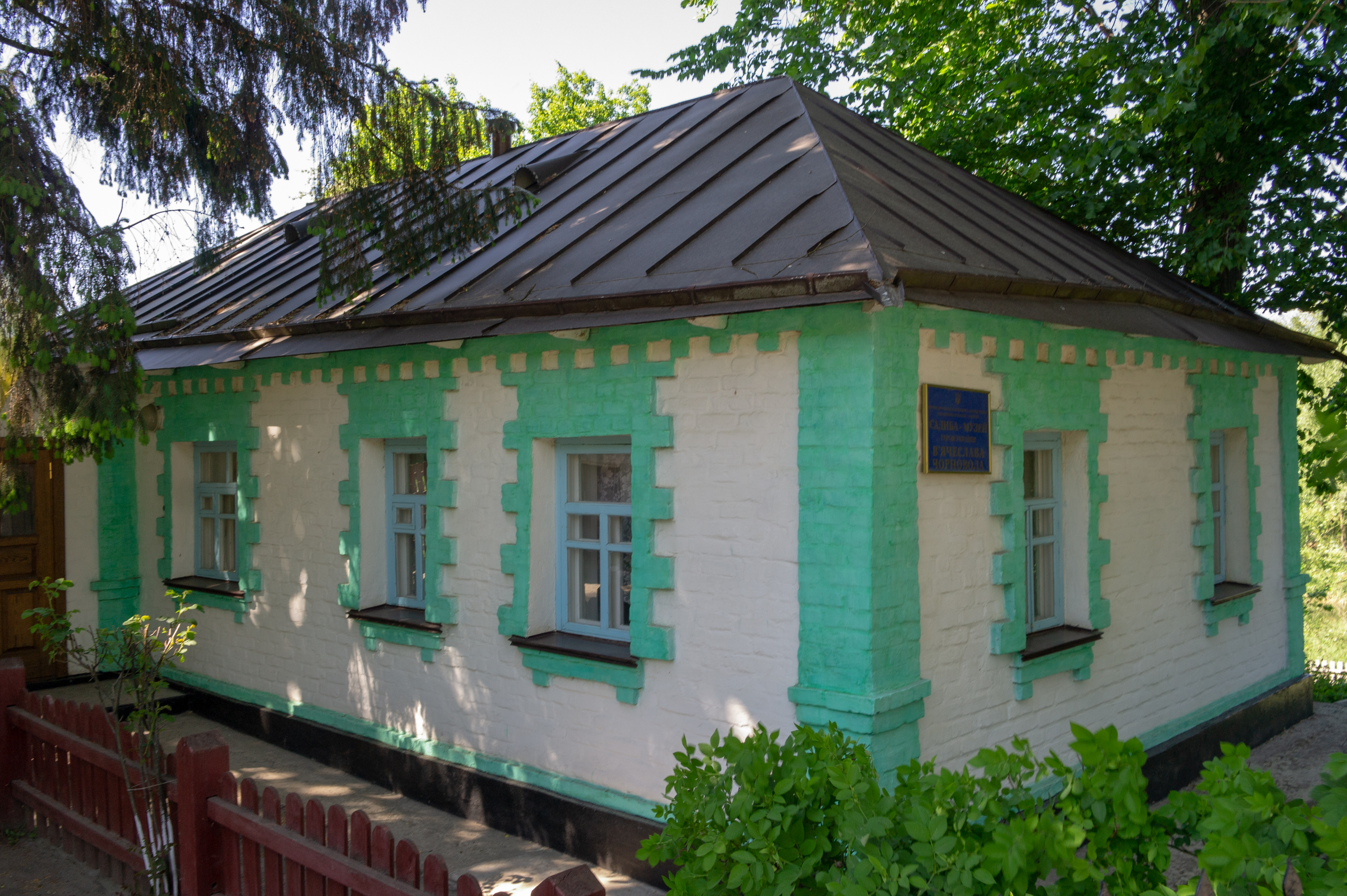|
University Of Kiev
The Taras Shevchenko National University of Kyiv (; also known as Kyiv University, Shevchenko University, or KNU) is a public university in Kyiv, Ukraine. The university is the third-oldest university in Ukraine after the University of Lviv and the University of Kharkiv. Its structure consists of 15 faculties and five institutes. The university was founded in 1834 by Nicholas I of Russia as the Saint Vladimir Imperial University of Kiev; it has since changed its name several times. During the Soviet Union era, Kiev State University was one of the top three universities in the USSR, along with Moscow State University and Leningrad State University. It is ranked as the best university in Ukraine in many rankings. Its alumni include Mykola Lysenko, Nikolay Bunge, Mykhailo Drahomanov, Mykhailo Hrushevskyi, Nikolai Berdyaev, Mikhail Bulgakov, Ivan Schmalhausen, Theodosius Dobzhansky, Viacheslav Chornovil, and Leonid Kravchuk. The university is named after Taras Shevchenko, who was ban ... [...More Info...] [...Related Items...] OR: [Wikipedia] [Google] [Baidu] |
Latin
Latin ( or ) is a classical language belonging to the Italic languages, Italic branch of the Indo-European languages. Latin was originally spoken by the Latins (Italic tribe), Latins in Latium (now known as Lazio), the lower Tiber area around Rome, Italy. Through the expansion of the Roman Republic, it became the dominant language in the Italian Peninsula and subsequently throughout the Roman Empire. It has greatly influenced many languages, Latin influence in English, including English, having contributed List of Latin words with English derivatives, many words to the English lexicon, particularly after the Christianity in Anglo-Saxon England, Christianization of the Anglo-Saxons and the Norman Conquest. Latin Root (linguistics), roots appear frequently in the technical vocabulary used by fields such as theology, List of Latin and Greek words commonly used in systematic names, the sciences, List of medical roots, suffixes and prefixes, medicine, and List of Latin legal terms ... [...More Info...] [...Related Items...] OR: [Wikipedia] [Google] [Baidu] |
Mykhailo Drahomanov
Mykhailo Petrovych Drahomanov (; 18 September 1841 – 2 July 1895) was a Ukrainian intellectual and public figure. As an academic, Drahomanov was an economist, historian, philosopher, and ethnographer, while as a public intellectual he was a political theorist with socialist leanings, perhaps best known as one of the first proponents of Ukrainian autonomism. For Drahomanov, ethnographic studies had a deep influence on his political ideas, and his politics in turn motivated study of particular areas of Ukrainian folk literature. Biography Early life in Poltava (1841-1859) Mykhailo Drahomanov was born on , into a minor noble family of Zaporozhian Cossack ancestry, in Hadiach, a town in the Poltava Governorate of the Russian Empire. His family's status meant Drahomanov was closely acquainted with the ideas of progressivism from an early age. His father, , was influenced by the liberal ideas of the Enlightenment and provided legal aid to serfs and military conscripts. His un ... [...More Info...] [...Related Items...] OR: [Wikipedia] [Google] [Baidu] |
Kievan Rus'
Kievan Rus', also known as Kyivan Rus,. * was the first East Slavs, East Slavic state and later an amalgam of principalities in Eastern Europe from the late 9th to the mid-13th century.John Channon & Robert Hudson, ''Penguin Historical Atlas of Russia'' (Penguin, 1995), p.14–16. Encompassing a variety of polities and peoples, including East Slavs, East Slavic, Norsemen, Norse, and Finnic peoples, Finnic, it was ruled by the Rurik dynasty, founded by the Varangians, Varangian prince Rurik.Kievan Rus , Encyclopædia Britannica Online. The name was coined by Russian historians in the 19th century to describe the period when Kiev was preeminent. At its greatest extent in the mid-11th century, Kievan Rus' stretched from the White Sea in the north to the Black Sea in the south and from the River source, headwaters of the ... [...More Info...] [...Related Items...] OR: [Wikipedia] [Google] [Baidu] |
Vladimir The Great
Vladimir I Sviatoslavich or Volodymyr I Sviatoslavych (; Christian name: ''Basil''; 15 July 1015), given the epithet "the Great", was Prince of Novgorod from 970 and Grand Prince of Kiev from 978 until his death in 1015. The Eastern Orthodox Church canonization, canonised him as Saint Vladimir. Vladimir's father was Sviatoslav I of the Rurik dynasty. After the death of his father in 972, Vladimir, who was then the prince of Veliky Novgorod, Novgorod, was forced to flee abroad after his brother Yaropolk I of Kiev, Yaropolk murdered his other brother Oleg of Drelinia, Oleg in 977 to become the sole ruler of Rus'. Vladimir assembled a Varangian army and returned to depose Yaropolk in 978. By 980, Vladimir had consolidated his realm to the Baltic Sea and solidified the frontiers against incursions of Bulgarians, Baltic tribes and Eastern nomads. Originally a follower of Slavic paganism, Vladimir converted to Christianity in 988, and Christianization of Kievan Rus', Christianized ... [...More Info...] [...Related Items...] OR: [Wikipedia] [Google] [Baidu] |
List Of Modern Universities In Europe (1801–1945)
The list of modern universities in Europe (1801–1940) contains all University, universities that were founded in Europe after the French Revolution and before the end of World War II. Universities are regarded as comprising all institutions of higher education recognized as universities by the public or Clergy, ecclesiastical authorities in charge and authorized to confer academic degrees in more than one Faculty (university), faculty. Temporary foundations are also included. Where institutions not meeting the definition of a University are included (e.g. university colleges) these are indicated by footnotes. At the outset of the 19th century, European universities had been severely affected by the Napoleonic Wars, their number falling in the brief span of time between 1789 and 1815 from 143 to 83.Rüegg 2004, p. 3 By 1840 their number recovered to 98 universities with approximately 80,000 students and 5,000 professors. Notwithstanding the trend towards specialized ... [...More Info...] [...Related Items...] OR: [Wikipedia] [Google] [Baidu] |
Zerkalo Nedeli
''Dzerkalo Tyzhnia'' (, ), usually referred to in English as the ''Mirror of the week'', is a Ukrainian online newspaper; it was one of Ukraine's most influential analytical weekly-publisher newspapers, founded in 1994.The press in Ukraine , ''BBC News'', 31 October 2006 On 27 December 2019 it published its last printed issue, it continued its life as a Ukrainian online newspaper.Zee County: The Mirror of the Week ran its last issue (27 December 2019) , its p ... [...More Info...] [...Related Items...] OR: [Wikipedia] [Google] [Baidu] |
Taras Shevchenko
Taras Hryhorovych Shevchenko (; ; 9 March 1814 – 10 March 1861) was a Ukrainian poet, writer, artist, public and political figure, folklorist, and ethnographer. He was a fellow of the Imperial Academy of Arts and a member of the Brotherhood of Saints Cyril and Methodius. He wrote poetry in Ukrainian language, Ukrainian and prose (nine novellas, a diary, and his autobiography) in Russian language, Russian, making him one of many iconic figures which belong to several Slavic language cultures. The town of Aktau in Kazakhstan was named after Shevchenko in the period of Soviet authority. His literary heritage, in particular the poetry collection ''Kobzar (poetry collection), Kobzar'', is regarded to be the foundation of modern Ukrainian literature and to some degree also of the modern Ukrainian language. Life Childhood and youth Taras Shevchenko was born on in the village of Moryntsi, Kiev Governorate, Russian Empire, about 20 years after the third partitions of Poland, partiti ... [...More Info...] [...Related Items...] OR: [Wikipedia] [Google] [Baidu] |
Leonid Kravchuk
Leonid Makarovych Kravchuk (, ; 10 January 1934 – 10 May 2022) was a Ukrainian politician and the first president of Ukraine, serving from 5 December 1991 until 19 July 1994. In 1992, he signed the Lisbon Protocol, undertaking to give up Ukraine's nuclear arsenal. He was also the Chairman of the Verkhovna Rada and a People's Deputy of Ukraine serving in the Social Democratic Party of Ukraine (united) faction. After a political crisis involving the president and the prime minister, Kravchuk resigned from the presidency, but ran for a second term as president in 1994 Ukrainian presidential election, 1994. He was defeated by his former Prime Minister of Ukraine, prime minister, Leonid Kuchma, who then served as president for two terms. After his presidency, Kravchuk remained active in Ukrainian politics, serving as a People's Deputy of Ukraine in the Verkhovna Rada and the leader of the parliamentary group of Social Democratic Party of Ukraine (united) from 2002 to 2006. Early li ... [...More Info...] [...Related Items...] OR: [Wikipedia] [Google] [Baidu] |
Viacheslav Chornovil
Viacheslav Maksymovych Chornovil (; 24 December 1937 – 25 March 1999) was a Ukrainian Soviet dissident, independence activist and politician who was the leader of the People's Movement of Ukraine from 1989 until his death in 1999. He spent fifteen years imprisoned by the Soviet government for his human rights activism, and was later a People's Deputy of Ukraine from 1990 to 1999, being among the first and most prominent anti-communists to hold public office in Ukraine. He twice ran for the presidency of Ukraine; the first time, in 1991, he was defeated by Leonid Kravchuk, while in 1999 he died in a car crash under disputed circumstances. Chornovil was born in the village of Yerky, in central Ukraine, then under the Soviet Union. A member of the Komsomol from his time in university, he was affiliated with the counter-cultural Sixtier movement, and was removed from the Komsomol after speaking out against communism. His samvydav, which investigated violations of intellectuals ... [...More Info...] [...Related Items...] OR: [Wikipedia] [Google] [Baidu] |
Theodosius Dobzhansky
Theodosius Grigorievich Dobzhansky (; ; January 25, 1900 – December 18, 1975) was a Russian-born American geneticist and evolutionary biologist. He was a central figure in the field of evolutionary biology for his work in shaping the modern synthesis and also popular for his support and promotion of theistic evolution as a practicing Christian. Born in the Russian Empire, Dobzhansky immigrated to the United States in 1927 at the age of 27. His 1937 work '' Genetics and the Origin of Species'' became a major influence on the modern synthesis. He was awarded the U.S. National Medal of Science in 1964 and the Franklin Medal in 1973. Biography Early life Dobzhansky was born on January 25, 1900, in Nemirov, Russian Empire (now Nemyriv, Ukraine), the only child of Grigory Dobzhansky, a mathematics teacher, and Sophia Voinarsky. He was given an unusual name, Theodosius, because he was born after his middle-aged parents prayed for a child to St. Theodosius of Chernigov. In 1 ... [...More Info...] [...Related Items...] OR: [Wikipedia] [Google] [Baidu] |
Ivan Schmalhausen
Ivan Ivanovich Schmalhausen (; 23 April 1884 – 7 October 1963) was a Ukrainian and later Soviet zoologist and evolutionary biologist of German descent. He developed the theory of stabilizing selection, and took part in the development of the modern evolutionary synthesis. He is remembered, among other things, for Schmalhausen's law, which states that a population at its limit of tolerance in one aspect is vulnerable to small differences in any other aspect. Early life and education Ivan Ivanovich Schmalhausen was born in Kiev, Russian Empire (now Ukraine) on April 23, 1884, to Luise Schmalhausen (Luisa Ludwigovna Schmalhausen) and Johannes Theodor Schmalhausen (1849–1894). His father was one of the founders of Russian paleobotany. In 1901, Schmalhausen graduated from the and enrolled at Kiev University, but was expelled a year later after taking a part in student disturbances. In 1902 he resumed his university studies at Kiev in the faculty of biological science. Around 19 ... [...More Info...] [...Related Items...] OR: [Wikipedia] [Google] [Baidu] |






